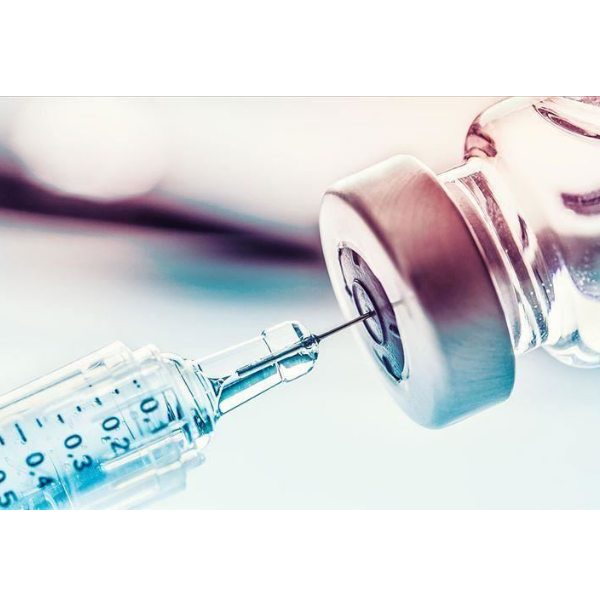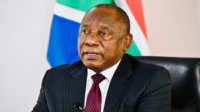SA Islamic Scholar Allegedly says it’s Waajib (Compulsory) for Muslims to Resist & Refuse Vaccination Programs

As South Africa and the world continue to battle the COVID-19 pandemic and with the detection of the new Omicron variant, Muslim scholar Mufti Siraj Desai says vaccinations allegedly do not cure people and their ability to prevent diseases is highly questionable.
The respected Aalim from Gqeberha in the Eastern Cape was responding to a question about the fatwa that was issued by the United Arab Emirates (UAE) Fatwa Council which allows Muslims to take the Coronavirus vaccine even though it contains non-Halaal ingredients.
According to a report in Khaleej Times, UAE Fatwa Council, under the chairmanship of Shaykh Abdallah bin Bayyah issued a ‘fatwa’ (Islamic ruling) allowing the coronavirus vaccines to be used in compliance with Islamic Sharia’s objectives on the protection of the human body and other relevant Islamic rulings.
The paper states that the Fatwa Council added that even though the vaccine in question contains non-halaal ingredients banned by Islam, it’s permissible to use it in implementation of the Islamic rule that permits the use of such products in case there are no alternatives.
In the response to the question about Coronavirus vaccines, Mufti Desai after providing an explanation says vaccinations allegedly contain haraam ingredients and are also harmful to human health.
“Independent researchers have documented large-scale, severe side-effects, even death from vaccines. Based on the above, according to Shariah it will not be permissible to take these vaccines. It is waajib (compulsory) on Muslims to resist and refuse vaccination programs.”
Mufti Desai also says vaccines allegedly do not constitute curative medication, but are merely preventative.
“Shariah has differentiated between the two methods of treatment by granting more scope to the former than the latter (preventative curing). So, when Shariah has circumscribed the use of certain haraam ingredients in curative medication, as explained, this restriction will apply with greater effect to preventative methods.”
Mufti Desai allegedly said if the news reports on the UAE Fatwa Council are correct on the gist of the fatwa, he can emphatically state that the council has erred gravely in its ruling.
Meanwhile, during his address to the nation on Sunday night on developments in South Africa’s response to the COVID-19 pandemic., President Cyril Ramamphosa said vaccination is by far the most important way to protect yourself and those around you against the Omicron variant, to reduce the impact of the fourth wave.
Ramaphosa says Government has set up a task team that will undertake broad consultations on making vaccination mandatory for specific activities and locations.
“The task team will report to the Inter-Ministerial Committee on Vaccination chaired by the Deputy President, which will make recommendations to Cabinet on a fair and sustainable approach to vaccine mandates.”
In September, the Jamiatul Ulama South Africa in a statement said the Islamic faith recognises science and medicine as fields of study that have contributed to the advancement of general welfare and the improvement of the human condition.
The Jamiat said the pandemic has affected all aspects of people lives and that their livelihoods are also at risk.
“On the continent, vaccines have been part of a successful public health response in the eradication of such diseases as polio and smallpox. In order to restore normalcy in our lives, including the manner in which we traditionally worship, our Council supports vaccines that are safe, effective and wholesome.”
On Wednesday South Africa recorded more than 8,500 new COVID-19 infections with the National Institute for Communicable Diseases’ (NICD) Professor Adrian Puren saying the fight against COVID-19 is far from over.
“South Africa is entering into the fourth wave with seven provinces. Taking measures to reduce the spread of infections including getting a COVID-19 vaccine , the wearing of masks and ventialtion is the best way to slow the spread of infections.”
The World Health Organisation Director-General Tedros Adhanom Ghebreyesus told a media briefing on Wednesday that at least 23 countries have reported cases of the Omicron variant and that number is expected to grow.
“We are learning more all the time about Omicron, but there’s still more to learn about its effect on transmission, severity of disease, and the effectiveness of tests, therapeutics and vaccines.
Ghebreyesus also thanked Botswana and South Africa “for detecting, sequencing and reporting this variant so rapidly”.
Read the Facebook post by Qalamul Haq about Mufti Siraj Desai’s Q & A about vaccines.








